
Board games are tabletop games that typically use pieces. These pieces are moved or placed on a pre-marked board and often include elements of table, card, role-playing, and miniatures games as well.

The Great Train Robbery was the robbery of £2.6 million from a Royal Mail train heading from Glasgow to London on the West Coast Main Line in the early hours of 8 August 1963 at Bridego Railway Bridge, Ledburn, near Mentmore in Buckinghamshire, England.
Train robbery is a type of robbery, in which the goal is to steal money or other valuables being carried aboard trains.
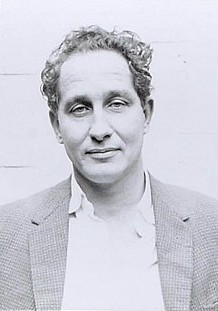
Ronald Arthur Biggs was an English criminal who helped plan and carry out the Great Train Robbery of 1963. He subsequently became notorious for his escape from prison in 1965, living as a fugitive for 36 years, and for his various publicity stunts while in exile. In 2001, Biggs returned to the United Kingdom and spent several years in prison, where his health rapidly declined. He was released from prison on compassionate grounds in August 2009 and died in a nursing home in December 2013.

Buster is a 1988 British romantic crime comedy-drama based on events from the Great Train Robbery, starring Phil Collins and Julie Walters.

The Great St. Trinian's Train Robbery is a British comedy film, directed by Frank Launder and Sidney Gilliat, written by Sidney and Leslie Gilliat, and released on 4 April 1966. It is the last of the original series of films based on the St Trinian's School set of images and comics, and the only one to be produced in colour. The film stars a selection of actors from previous films in the series, including George Cole, Richard Wattis, Eric Barker, Michael Ripper, and Raymond Huntley, alongside Frankie Howerd, Reg Varney, Dora Bryan, and the voice of Stratford Johns.

Jack Mills was a British railway worker who was the driver of the train that was robbed in the Great Train Robbery in 1963.

Robbery is a 1967 British crime film directed by Peter Yates and starring Stanley Baker. The story is a heavily fictionalised version of the 1963 Great Train Robbery. The film was produced by Stanley Baker and Michael Deeley, for Baker's company Oakhurst Productions.
Jack Kenneth Slipper was a Detective Chief Superintendent in the Metropolitan Police in London. He was known as "Slipper of the Yard". He was mainly known for his role in investigating the Great Train Robbery of 1963, and in tracking down Ronnie Biggs after he escaped from prison in 1965, although he had to leave Brazil without Biggs.
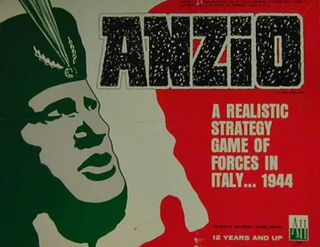
Anzio is a board wargame published by the Avalon Hill game company first in 1969 and again in 1971, 1974, and 1978. The title is misleading as the game is not an operational-level treatment of the Battle of Anzio but is in fact a strategic level game covering the entire Italian theater of operations in World War II from the autumn of 1943 to the end of the war in Europe.
Brian Arthur Field was an English solicitor's clerk who was one of the masterminds of the 1963 Great Train Robbery. He was the crucial link between the key informant known only as "Ulsterman" with the actual gang capable of planning and carrying out such a complex and large scale robbery. He was found guilty of conspiracy to rob, but his conviction was later overturned on appeal. Field only served prison sentence for perverting the course of justice, in relation to arranging the purchase of Leatherslade Farm, near Oakley, Buckinghamshire, which was used as the gang's hideout.

Ronald Christopher "Buster" Edwards was a British criminal who was a member of the gang that committed the Great Train Robbery. He had also been a boxer, and owned a nightclub and a flower shop.
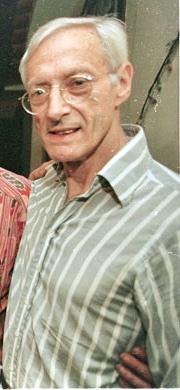
Bruce Richard Reynolds was an English criminal who masterminded the 1963 Great Train Robbery. At the time it was Britain's largest robbery, netting £2,631,684, equivalent to £58 million today. Reynolds spent five years on the run before being sentenced to 25 years imprisonment in 1969. He was released in 1978. He also wrote three books and performed with the band Alabama 3, for whom his son, Nick, plays.
Bruce Barrymore Halpenny was an English military historian and author, specialising in airfields and aircraft, as well as ghost stories and mysteries. He was also a broadcaster and games inventor.
The Reno Gang, also known as the Reno Brothers Gang and The Jackson Thieves, were a group of criminals that operated in the Midwestern United States during and just after the American Civil War. Though short-lived, the gang carried out the first three peacetime train robberies in U.S. history. Most of the stolen money was never recovered.

Thomas Marius Joseph Butler was a Detective Chief Superintendent in the Metropolitan Police in London. He was most notable for leading the team of detectives that investigated the Great Train Robbery in 1963. He never married and lived with his mother. Butler was arguably the most renowned head of the Flying Squad in its history. He became known as "One Day" Tommy for the speed with which he apprehended criminals and the "Grey Fox" for his shrewdness.
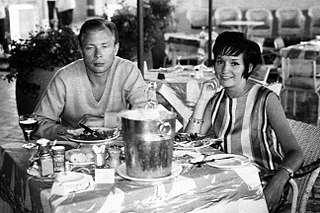
Terence Hogan, also known as Terry "Lucky Tel" Hogan and Harry Booth, was an English professional criminal and notorious figure in the London underworld in the 1950s and 1960s. He took part in the 1952 Eastcastle Street mailbag robbery in which £287,000 was stolen from a post office van leaving Paddington station. Hogan was a member of the infamous "Bowler Hat Gang", who dressed-up as city gents to execute the robbery of an armoured payroll truck at London's Heathrow Airport in 1962, and following a short time later, was believed to be tied to the Great Train Robbery (1963) under his alias Harry Booth.
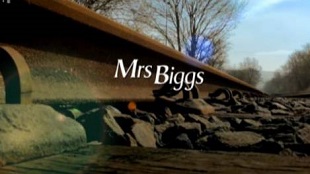
Mrs Biggs is a 2012 British television series based on the true story of the wife of the Great Train Robber, Ronnie Biggs. The series covers Mrs Charmian Biggs' journey from naïve young woman to Biggs' wife and the mother of three young sons. Money worries force her husband to ask for a loan from Bruce Reynolds, planner of one of the most famous crimes in British history, the Great Train Robbery of August 1963. The aftermath of the train robbery and Biggs subsequent escape from prison leads to a life of flight for Charmian and her children as she tries to keep the family together.
Charles Frederick Wilson was an English career criminal. A member of the Great Train Robbery gang, of which he was treasurer, he was murdered by gunshots on his Marbella doorstep in 1990.

The Great Train Robbery is a two-part British television miniseries, written by Chris Chibnall, that was first broadcast on BBC One on 18 and 19 December 2013. The series is distributed worldwide by Kew Media.













